While we are continuing to see a significant decline in monkeypox cases in the U.S., upper respiratory diseases, including influenza, COVID, and RSV are increasing. The significant increase in flu cases and slighter, but similar geographic, increases in COVID are not unexpected, as respiratory illnesses tend to have seasonal increases as winter sets in and people gather indoors with less exterior airflow.
The increases of influenza and COVID are following, again, a typical pattern, spreading from the Southern and Northeast/New England states and moving northward and westward. With both illnesses transmitted in the same way – through airborne, aerosolized particles from infected persons – the best way to mitigate transmission is to maintain distance from those who are ill, with ill persons staying home.
The COVID variants are also continuing to show dominance in TAG’s weekly matrix, with BA5 still dominant but declining and BA4.6 increasing. The XBB and BQ.1 variants are showing high rates in Europe – which tends to be a precursor to trends in the U.S., and both variants are said to have higher immune escape properties than any previous variants. These variants continue to be key to watch, particularly as we head into the holidays with increased outings and gatherings in enclosed spaces.
COVID Risk Matrix:
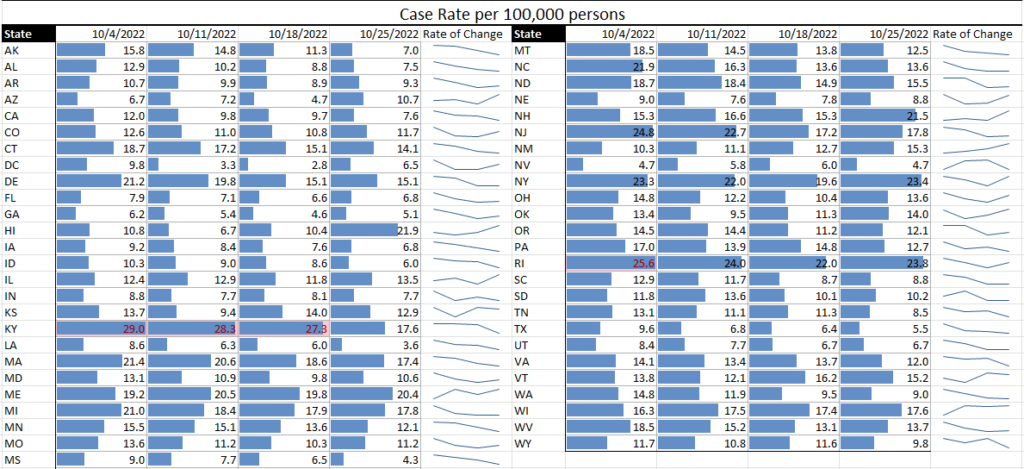
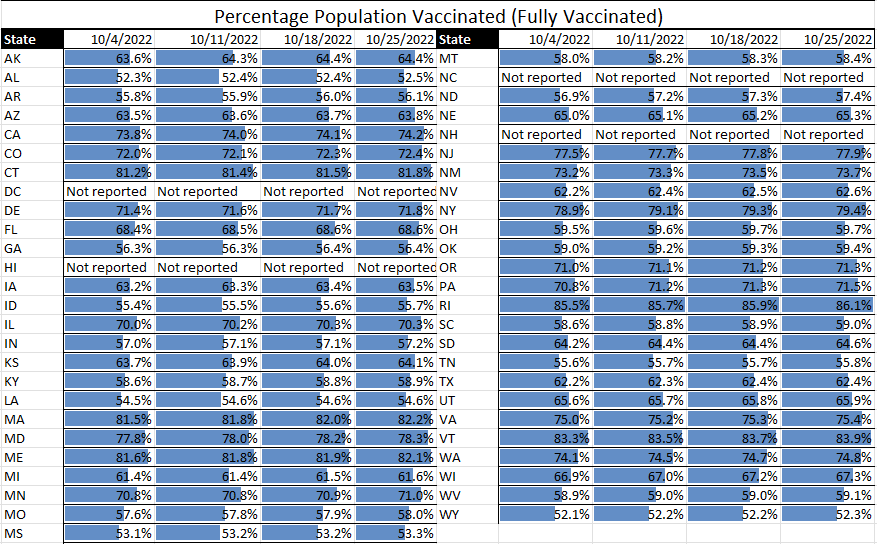
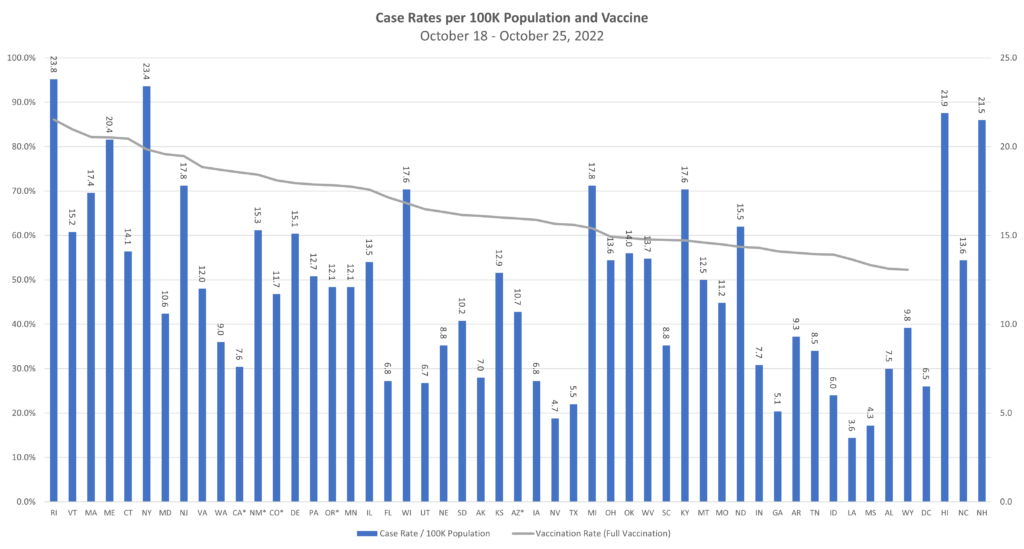
Monkeypox:
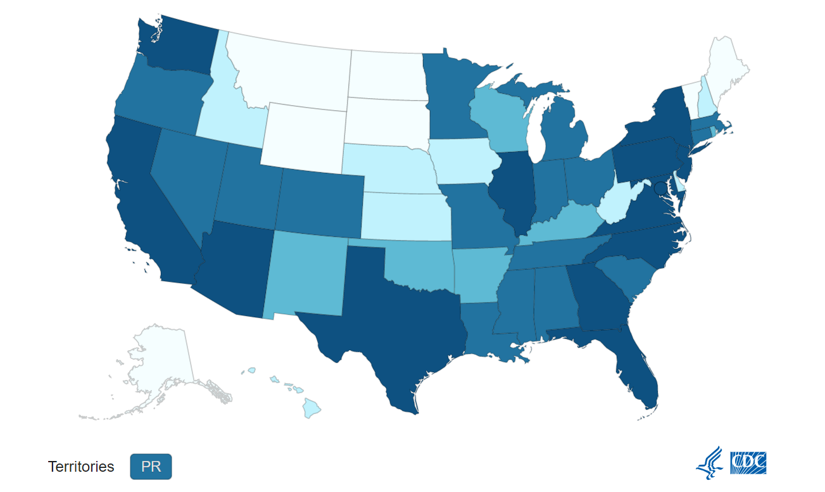

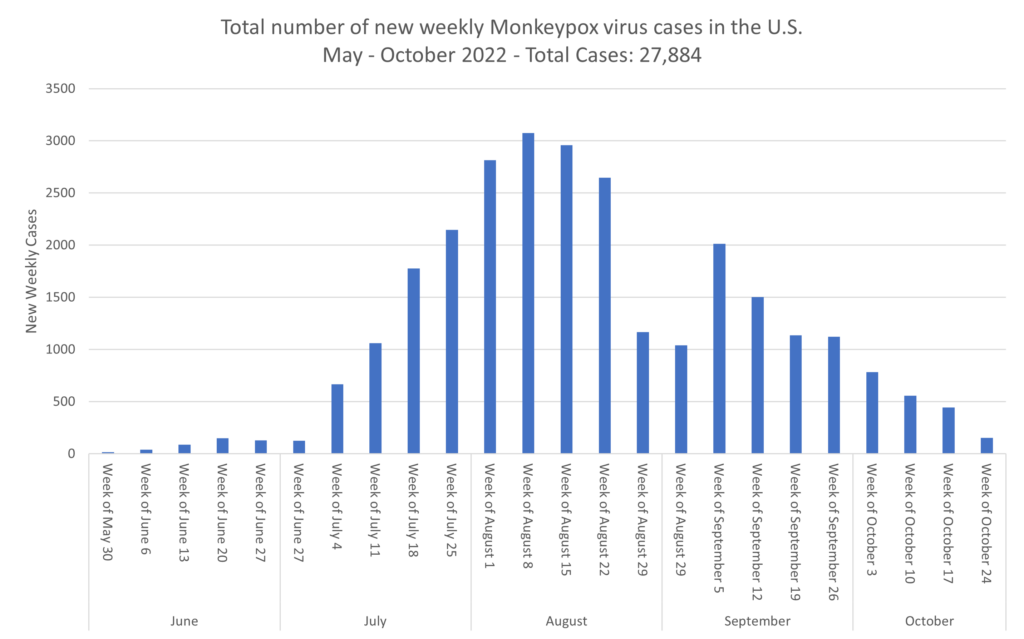
Influenza:
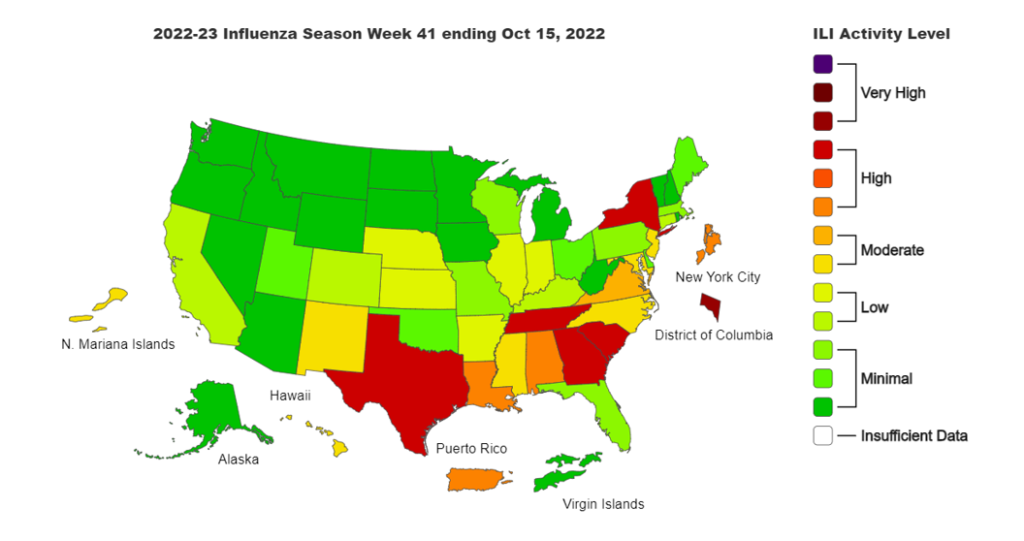
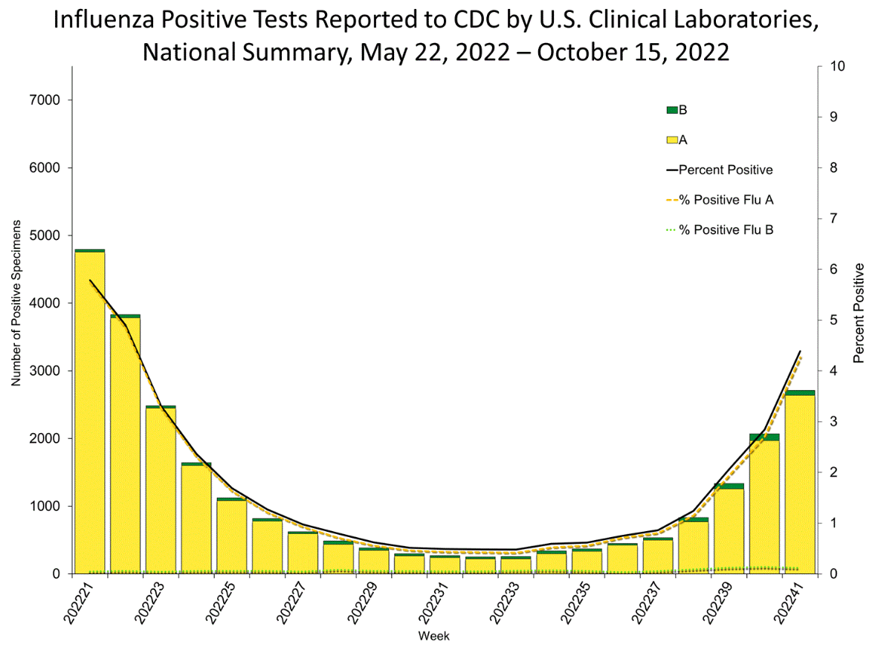
Infectious Disease News
- Influenza. A potentially harsh flu season has begun in the U.K. and Vietnam has reported its first human case of influenza A(H5) in Vietnam since February 2014. Additionally, Russian officials are warning of a severe flu season expected to peak at the end of November – in early December.
- COVID. European, US officials are tracking BQ.1 Omicron subvariant rises. Epidemiology experts have stated that there has been a steady rise in BQ.1 cases. Experts have closely been tracking XBB as well, which is said to have the most immune escape properties of any variant so far. In related news, 19.35 million people have received the updated bivalent COVID booster.
- Respiratory Syncytial Virus (RSV) cases are spiking in at least 32 states, according to the CDC.
- Ebola. Cases of the Sudan strain circulating in Uganda have been detected in the capital of Kampala indicating significant spread. There is evidence of several of these cases not being related to the other known cases indicating that there may be additional chains of transmission. No cases have yet been reported in the U.S., however on Oct. 6, federal officials began routing all U.S.-bound passengers who have been in Uganda in the 21 days before arrival through one of five airports where they are checked for symptoms by the CDC. Those who show no symptoms are allowed to continue to their final destination.
- The WHO released its first-ever list of fungal “priority pathogens,” identifying 19 fungi that are significant public health threats because of their ability to cause severe invasive infections and their growing resistance to antifungal drugs.





